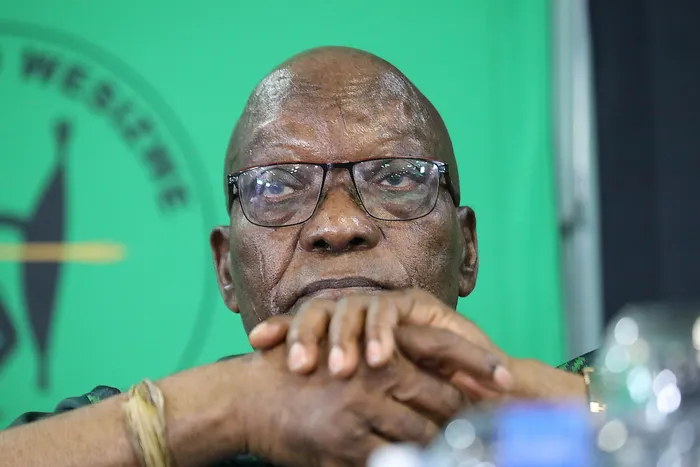COMMENT | Shivambu’s exit exposes fragile leadership and factional tensions in MK Party

Floyd Shivambu’s removal from his secretary-general position exposes MK party's deepening leadership crisis.
Image: Independent Media
The absence of a formal party conference within the MK (Umkhonto Wesizwe) Party reflects the glaring ongoing lack of leadership stability - leadership appointed based on merit and allowed to lead without interference from factions prioritising internal power struggles over organisational capacity.
While this move appears to be an internal disciplinary action, its implications run deeper. They reveal the MK party’s fragile leadership and raise questions about its future direction.
Shivambu’s departure from his position follows his fallout with EFF leader Julius Malema. After that, he resigned from his position as Deputy President of the Economic Freedom Fighters (EFF) to serve as MK’s Secretary-General, helping establish the party’s leadership structures.
His exit, long anticipated despite frequent denials, is not merely about a controversial trip to Malawi or an internal constitutional breach.
It exposes longstanding instability and informal governance practices that have plagued the MK Party.
The party’s leadership style-sudden shifts, personal loyalties, and a lack of institutional discipline - mirrors the chaos associated with former President Jacob Zuma’s administration, where unpredictability undermined state credibility and hampered effective governance.
Removing a high-profile figure like Shivambu could serve as a wake-up call, signalling a desire to restore discipline and order within MK. However, it also risks further fragmentation, especially if factions interpret the move as a power struggle or purge.
These perceptions could translate into electoral losses and diminished influence in a country with fragile political trust.
While some may see Shivambu’s removal as a minor internal matter, it reflects broader currents shaping South Africa’s political environment.
Parties plagued by leadership crises - such as COPE and the ANC - tend to be less effective in governance and policymaking.
As MK struggles with internal issues, opposition parties, and civil society will monitor it closely to assess whether its instability will spill over into its public engagements or impair its capacity to participate meaningfully in national debates.
The party could emerge stronger if it institutionalises decision-making, fosters internal dialogue, and demonstrates a commitment to stability. Conversely, if it continues operating reactively and informally, it risks further erosion of legitimacy.
The removal of Shivambu is more than an internal disciplinary matter; it reflects the broader challenges facing the MK party and South Africa’s political parties. For MK party, the path forward requires introspection, reform, and a commitment to building a disciplined, transparent organisational culture.
Recent events added to the turmoil and highlighted the party’s internal divisions. MK party supporters were forced to choose sides as former Public Protector Busisiwe Mkhwebane and businesswoman Mary Phadi, formerly a provincial convenor, held separate meetings on the same day at different venues.
Phadi, suspended in 2024 over alleged misconduct and subsequently replaced by Mkhwebane, had her suspension overturned in court, declaring it unconstitutional. Yet, the party continues to recognise Mkhwebane as the legitimate provincial leader - an act that suggests possible contempt of court.
The choices made now will determine whether this moment marks a turning point toward stability or a descent into chaos. Ultimately, political parties are only as strong as their leadership.
**Thabo Makwakwa is a Senior Journalist at IOL
*** The views expressed here do not necessarily represent those of IOL or Independent Media
IOL Politics
Related Topics:
